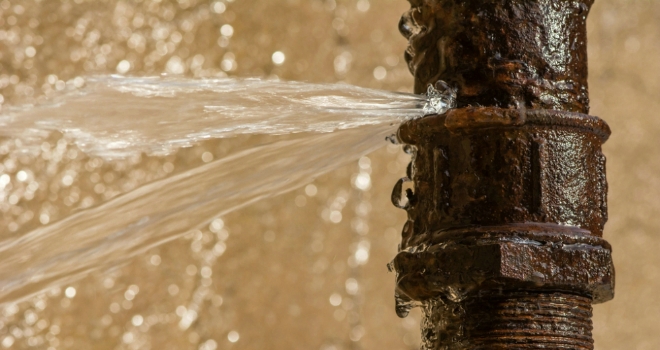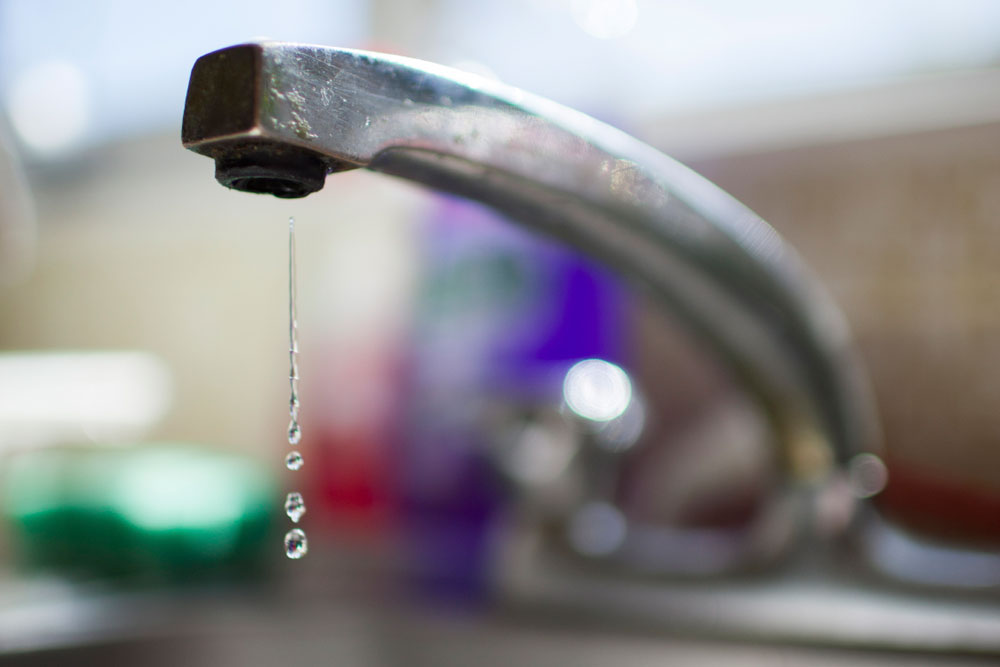They are making several great points relating to How to Find and Prevent Water Leaks in Your Home overall in this article down the page.

"Beware of little costs. A tiny leak will sink a wonderful ship." - Benjamin Franklin.
He couldn't have been much more ideal since water leaks in our homes result in a waste of sources, boosting our water costs. This increase could seem minimal at first, it can lead to considerable expenditures that can damage your bank. In addition to a rise in bills, water leaks additionally trigger undesirable organic growth, architectural damages, as well as even electrical risks.
Identifying if you have a water leakage isn't always very easy due to being incapable to see most of the pipework in your home. However, If you have had a boost in your water bills lately, observed water stains on walls and ceilings, smelt poor odor, etc. You may want to take into consideration requesting plumbing solutions to get it took a look at.
There are numerous sources of water leakages, and we have put together the typical factors listed below. Check to see if you have had related issues in your home recently.
Deteriorated pipe joints
Pipe joints are the parts of our plumbing system where the pipes attach. They are the weakest point of our plumbing system. Therefore, they are a lot more at risk to degeneration. It is essential to keep in mind that even though pipelines are designed to endure stress and last for a while, they weren't created to last for life; therefore, they would weaken gradually. This damage can lead to cracks in plumbing systems. A common indication of harmed pipe joints is extreme noise from taps.
High water pressure
You noticed your house water pressure is more than typical yet then, why should you care? It runs out your control.
It would be best if you cared due to the fact that your average water pressure need to be 60 Psi (per square inch) and although your residence's plumbing system is designed to endure 80 Psi. A boost in water stress can put a pressure on your residence pipes as well as bring about splits, or even worse, ruptured pipes. If you ever before notice that your house water stress is greater than usual, contact an expert concerning managing it.
Corrosion
As your pipework grows older, it obtains weak as well as much more susceptible to rust after the regular flow of water via them, which can gnaw at pipes and cause splits. A visible sign of corrosion in your house plumbing system is discoloration and also although this may be hard to detect as a result of a lot of pipes hidden away. Once they are old to guarantee a sound plumbing system, we recommend doing a constant checkup every couple of years as well as transform pipelines
Blocked drains
Food fragments, dust, and also oil can cause clogged drains as well as obstruct the flow of water in and out of your sink. Boosted pressure within the seamless gutters can end and also trigger an overflow up splitting or rupturing pipes if undealt with. To avoid clogged up drains pipes in your home, we recommend you to avoid putting bits away and normal cleaning of sinks.
Broken seals
One more cause of water leakages in homes is damaged seals of home devices that utilize water, e.g., a dishwasher. When such appliances are set up, seals are mounted around water ports for very easy passage of water with the machine. For this reason, a damaged seal can create leakage of water when being used.
With little or no expertise of plumbing, understanding your home's plumbing system adequate to fix a few of these problems (without repercussion) can be a hassle. Connect with plumbing experts in Pittsburgh, Divine Superintendence, Rochester, and environ today, and they'll make those concerns vanish.
He could not have actually been a lot more ideal since water leaks in our homes result in a waste of sources, boosting our water bills. If you have had an increase in your water costs recently, discovered water stains on wall surfaces as well as ceilings, smelt poor odor, and so on. An increase in water stress can put a pressure on your home pipelines and lead to fractures, or worse, ruptured pipes. Another reason of water leaks in houses is damaged seals of residence devices that use water, e.g., a dishwashing machine. When such devices are installed, seals are mounted around water ports for simple passage of water via the machine.
5 TIPS IN DETECTING A WATER LEAK IN YOUR HOUSE
Water leaks can be hard to find in your home, yet they can be so common. We rely on water every day in our home, which is why a leak can cause big problems. By detecting them early, you can save money and further damage, getting the problem fixed as soon as possible. Here are 5 tips to help you detect a water leak in your home, so you can contact a plumber straight away and get the issue sorted.
Check your water meter
Many people underestimate the value of the water meter in their home. It can be one of the best ways to tell if you have a leak early on, so you can get on top of it before issues start arising. Start by turning off all the water in your home: taps, washing machine, dishwasher, etc. Now take a look at the meter – if it’s still changing with everything turned off, it’s likely you have a fast-flowing leak that you need to get on top of straight away. If nothing changes, then leave your meter for an hour or two and come back to it. Did it change in this time? It’s likely you have a slower leak, which isn’t as urgent but still handy to get fixed so it doesn’t become a bigger problem.
Keep an eye on your bill
Another good way to detect a leak in your home is by keeping an eye on your water bill. It helps if you have a past bill from the same period of time. You can compare like for like and determine whether your water usage has increased significantly. If it has, there may be a leak in your system that you haven’t picked up before. A professional plumber can check through all of your pipes and determine where it is coming from.
Look for damage
If you have a leak inside your home, you will notice damage over time. Take a look at your showers and bathtubs and note whether any of the tiles surrounding the area seem to be discoloured or damaged in any way. There may be water stains, mould or peeling material that has resulted from a build up of moisture over time. Make sure you take a look under sinks at the back of cupboards that don’t get accessed regularly. This is where damage can go unnoticed and build up over periods of time.

We hope you liked our piece about Where to Find Water Leaks. Thank you for taking a few minutes to read. Don't hesitate to take the opportunity to distribute this write-up if you enjoyed it. Thanks a lot for your time. Don't forget to check our website back soon.
Address plumbing urgencies.